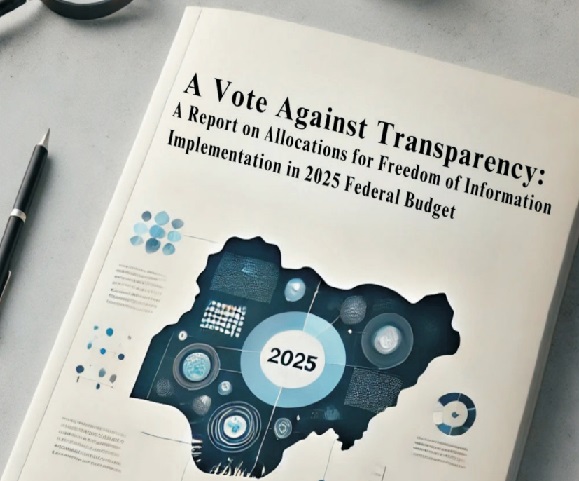MRA claims Nigerian government undermining FOI Act due to insufficient funding
The Media Rights Agenda (MRA) has raised concerns regarding the Nigerian government’s commitment to the Freedom of Information (FOI) Act.
MRA primarily cited inadequate funding as a critical issue.
The MRA’s findings indicate that only a minuscule percentage of federal public institutions have allocated funds for the implementation of the FOI Act in their 2025 budget proposals.
Specifically, it was reported that merely one percent of these institutions included provisions for FOI-related activities, highlighting a severe lack of prioritization by the government.
According to the MRA’s report titled “A Vote Against Transparency,” released on January 15, 2025, out of over 1,300 federal public institutions, only 13 had made any budgetary allocations for FOI implementation.
READ ALSO: MRA labels Nigeria Police ‘gun for hire’, condemns editor’s abduction
The total proposed allocation amounted to approximately N230 million, which represents an astonishingly low 0.000464 percent of the Federal Government’s overall budget of N49.74 trillion. This stark contrast between the vast budget and minimal allocation for transparency initiatives raises alarms about the government’s dedication to accountability.
John Gbadamosi, a program officer at MRA, emphasized that neglecting to invest adequately in the FOI Act could jeopardize other governmental projects and expenditures. He argued that without proper transparency mechanisms in place, there is a heightened risk of mismanagement and corruption within various sectors. The MRA’s previous reports have consistently pointed out that insufficient funding for transparency measures can lead to broader governance issues.
Interestingly, while there was a noted increase in funding—up by 96.76 percent compared to 2024—the overall amount remains alarmingly low. The number of institutions with budget provisions rose from 10 to 13, yet this marginal improvement does not alleviate concerns regarding the effectiveness of the FOI Act without substantial financial backing.
The FOI Act was enacted in 2011 with the intent to enhance public access to information held by government bodies. It mandates public institutions to make records available and respond promptly to information requests. However, many institutions continue to disregard these obligations, undermining efforts toward transparency and accountability.
Gbadamosi articulated that nearly fourteen years post-enactment, there has been a persistent failure from the government to provide necessary resources—financial or otherwise—to ensure effective implementation of this crucial legislation. This lack of commitment poses risks not only to democratic processes but also fosters an environment conducive to secrecy and corruption.
To address these shortcomings, MRA recommends increased resource allocation specifically directed towards enhancing oversight capabilities within relevant ministries such as the Ministry of Justice. Strengthening compliance mechanisms is essential for ensuring that public institutions adhere to their obligations under the FOI Act.


